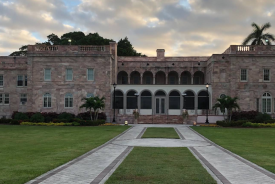University of Hong Kong Policy Does Not Protect Academic Whistle-Blowers; Is This A Bad Practice?
ByWhile disclosing a complainant's identity may seem to be a really bad practice, HKU has no laws to protect academic whistle-blowers.
Following the recent controversy over the University of Hong Kong's handling of an academic scandal, it was divulged that the university's policy does not conceal the identity of the whistle-blower. In fact, the policy say whistle-blower's identity shall be disclosed to the accused parties.
No prizes for guessing, this immediately raises concerns over counterblow.
According to a master whistle-blower, revealing complainant's identity would be "really bad practice".
Citing this unnerving revelation, a group of university academics created a concern group to persuade the government to set up laws to offer protection to whistle-blowers, according to reports on SouthChinaMorningPost.
An ex-assistant professor in the department of chemistry subjected his then-supervisor, Professor Yang Dan to accusations of tampering with research results in a paper published in a renowned international journal, Journal of the American Chemical Society.
The former assistant professor also accused two of Yang's doctoral students to be a part of falsifying the research results.
In February 2015, just two months after he made the accusation, the complainant, Professor Roger Wong Hoi-fung said he received an email of his dismissal from Yang. The university, however had a change of heart and decided to retract the termination of his contract in May after he complained to the university about the dismissal.
But he did not stick around for more than two months as he just wanted to prove that his complaint was not about his personal benefit.
Yang said she had issued a notice of termination to Wong in December 2014, before he made the complaint.
Wong, who is one of the founders of the concern group noted that the involved paper used HK$1.65 million of public money funded by the University Grants Committee, however there is no law in Hong Kong that regulates research fraud or even offer protection to academic whistle-blowers.
"There is an urgent need for the legislation on this," Wong pointed out.
According to HKU's whistle-blowing policy, "the identity of the whistle-blower, if known, shall be made known" to the accused parties. However, an exception can be made if there is a special request from the complainant with convincing reasons not to do so.
David Lewis, a professor of employment law and head of the Whistleblowing Research Unit at Middlesex University in London said "Good practice is to allow confidential reporting and to keep the identity of the whistle-blower away from the accused person because there is no positive reason for passing on that information, unless it appears a calculated malice."
"The idea that we will pass on your identity to anybody else is really bad practice," Lewis added.
© 2025 University Herald, All rights reserved. Do not reproduce without permission.








